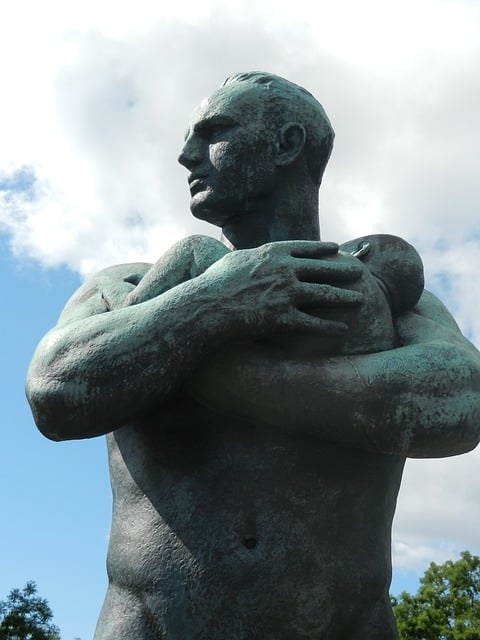By Alisa Schindler
I call multiple times in the hope that when I arrive he will be outside waiting. There’s the wakeup call. The check in an hour later to make sure the wakeup call actually prompted some movement. The, ‘I’m getting in my car’ call, the, I’m ‘five minutes away’ call, and of course, the ‘I’m outside waiting’ call.
Depending on his coherency and agitation, I judge whether it seems sane to actually wait for him to come out. In about 1 in every 10 or so visits, I actually pretend that he might just walk out without my assistance, so I sit and play on my phone or read a few pages in my book letting the minutes disappear along with my hope, before eventually giving up and heading in.
Walking into his apartment my face immediately falls, but I am quick to pick it up because the floor is disgusting. Even with a home health aide there six days a week, he spends much of his alone time upsetting any attempts at cleanliness or organization she may have accomplished.
It is Sunday, the aide’s day off, and already the apartment looks ransacked. Pills everywhere – purple ones, pink ones, yellow and white ones dotting the floor like dropped M&M’s. Multiple red Solo cups darkened with colas, crusty mixes of yogurt and cereal and more pills stand up and out in the clutter of papers piled all around. Cabinet doors suspend open, cereal boxes ejected to the counter, Kashi and Cheerios strewn onto the floor. Clothes covered in food stains and old cigarette holes hang on the backs of chairs while a pizza box that was apparently used as a plate for what may have been his middle of the night snack of eggplant parmesan, remains discarded on the couch.
But even in the disaster, the biggest mess by far is the recliner chair, stained with food, dampened with body excretions and covered with at least four twisted, ragged pillows. Like all the furniture, it is less than a year old, my mother (his ex-wife) and I having picked it out right before we moved him to this new apartment, this new hope, and it is as sad and defeated as the man sitting in it.
My father.
“Hey,” I say, unable to contain the disappointment in my voice. “I thought you were ready.”
My sigh is deep. My sigh is decades old. My sigh knows better than to expect anything and yet, as steeled as I am, my sigh says I actually still do.
I almost never call him Dad anymore, at least not if I can avoid it and certainly not to other people. When I speak with his home health aides I ask, “How’s my father is doing?” When I introduce him to anyone, whether it’s a social worker or one of my friends I say, “This is my father.”
Father puts a wall between us. It’s proper and states a relationship but not the emotional connection of Dad. Dad is the man who buys you double-scoops of ice cream before dinner, who tickles you till you pee your pants, and tells you stories at the side of your bed.
A long time ago, he was my dad. With Popeye muscles, a mischievous energy and a never ending supply of dollars passed to me on the sly for whatever I wanted, candy, stationary, little toys, mostly candy. He was the kind of dad who played, really played. Cool games of hide and seek with the lights out where he stomped around growling, “I’m gonna get ya!” and my 8 year old heart nearly bursting with nervous fear. He liked arcades, amusement parks and movies. My mom would probably say he was always the biggest child in the room, and that it would have been a lot better for their doomed marriage if he liked working as much as he liked playing or drinking. But what did that matter? He liked me. We were a team. Our mirrored green eyes twinkled with mutual affection as he lifted me up onto his shoulders in the sun.
“Hey,” I repeat louder, trying to rouse him but not really wanting to touch him. I can barely remember a time when touching him wasn’t a conscious effort. “You’re supposed to be up, remember?”
“Can’t get up,” he mumbles without opening his eyes.
Frustration overwhelms and squeezing my eyes and gritting my teeth aren’t as effective calming devices as they once were. I breath deep. Doesn’t help either. I want to bolt so badly, but I am cemented to the dirty carpet, this moment, this man.
The family is already gathered at my mother’s house nearby for Mother’s Day. It’s an opportunity for my father to see mine and my brother’s kids and us, of course. Regardless that they divorced over 35 years ago, he is invited to all our gatherings, whether at my mom and step father’s or at my home, but like my birthday last week or Passover dinner or my son’s baseball game, he hasn’t felt comfortable enough to attend.
“I’m not well,” He manages, lifting open his eyes with effort. Amazingly the green is still the color of new grass, but he’s not really seeing me. His pain, his depression, his pills and his dreams all cloud his vision.
“I can see that,” I say, a little snarky, feeling my walls fortify. “I think you’d feel a little better if you came and saw all the kids,” I try because that’s what I do, but I know it’s useless. Whether it’s mental pain, physical or a combination, when he is not well, well intentioned encouragement is perceived as bullying, and if there’s something that brings out his rage, it’s reminders that is without control.
“How bout I call you in an hour and come back to pick you up if you feel better?” I suggest. Yes, let’s pretend this is a normal conversation. Let’s pretend you’ll feel good and join us. Let’s pretend we’re not at the frayed ends of our ropes. I back slowly toward the door. He nods and I’m not sure if he’s about to drift off or cry.
I can’t remember exactly when he became my father.
Was it when I was 17 and played back an incoherent message from him on my brand new answering machine on my personal line, “Leetha, need helppa…” and then leaving the phone off the hook until I had no recourse but to call the police who were forced to break down his door when he was unresponsive, ultimately claiming to have taken an extra sleeping pill?
Was it when I was 23 and living with him after college and spent night after night following him around as he wandered the house in a drug induced sleep walk, staggering, eating, and on one occasion trying to drive?
Was it when he accidentally poisoned himself by drinking cleaning fluids, and then a week later accidentally did it again?
Was it the first time he went into the psych ward? The second?
Was it watching all expression on his face slide off receiving a shot of morphine?
Was it when I became his advocate, the one to get him on disability, find him housing again and again, apply for social services, talk to doctors, listen to his rants and raves, his tears and frustrations, his emotional torture, his delusions, his unrealistic hopes, his never ending desperation and need?
My dad is beautiful, his smile charismatic and bright, so full of life and joy. He is good and generous and has many friends. He makes ridiculous diving catches at his softball games and is king at his racquetball club. He kneels by my bed concocting silly stories and making up characters with his fingers. He plays the tickle monster under covers and takes me for milkshakes that we add chocolate sprinkles and suck up through the straw. My dad is strong. He lifts me up with one hand, swings me around and tosses me giggling onto the bed. He jumps in the pool with a splash and relaxes in the sun to dry off while I walk my little feet over his back. I am his little girl and I love when he snickers like Ernie from Sesame Street or says, ‘Yello!’ when answering the phone. They call him ‘Grey Wolf’ and ‘Silver Fox’ for his prematurely grey hair which only highlights his crystal eyes, and he calls me ‘Doll’.
My father is old before his time. He is broken and lost, weak and desperate. He has struggled with addiction, mental illness and chronic pain. He is self-destructive and lonely and needs more than I can give.
Now he weeps silently, tears clogging his throat but he still won’t come, still can’t lift himself from his depression and pain and can only lose himself in sleep.
I should go over and comfort him, just a warm hand on the shoulder, but after so many years and so much frustration, it is difficult, so difficult. Food remnants cling to his face. He is damp with tears and spittle. His eyes close heavily. He wants to sleep. Wants to leave this ugly scene where he’s alone with his misery and I go back to the party already in progress. Do it, I mentally order myself, but it’s harder than you could imagine. I slowly walk over, bend down and kiss his sagged cheek.
He nods and gives a little smile, a small glimmer of someone I once knew.
“It’s okay, dad,” I say, for a second allowing myself to remember that I used to love him like crazy. “I’ll stop and drop you off a doggie bag on my way out.”
He shakes his head accepting and I leave, both of us simultaneously relieved and miserable.
My dad is dead, but he is still my father.


I struggle to understand … to understand what ‘rules’ we are following, what code, WHAT? that keeps us (grown children) so devoted, though increasingly flinching, to these creatures, our ex-Dad’s, shells of their former self. I just don’t get it. I’d rather volunteer at a hospital, or a nursing home. Visit strangers and spend time with them. Hold their hands. Take them for walks. There are so many ways of expressing love. Don’t cast your pearls before swine!